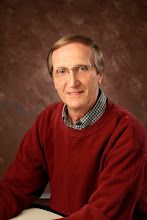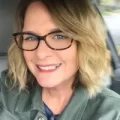 http://yourhumorsense.blogspot.com/
http://yourhumorsense.blogspot.com/
Author of various books including the Newspaper Caper
by Trisha Bleau Smith
T4JYM: Having read your works in the past I am anxious to read your next release, Newspaper Caper, which realeases at the end of August. Where did the idea for the book come from? Where do you generally draw your ideas for writing from?
MEA: Apart from God’s prompting I can honestly say I don’t know where the ideas come from. This has been one of the delightful mysteries of this journey I’m on. I do know there are several topical subjects I want to get across to kids, especially young boys, about honor, fidelity, honesty, keeping one’s word, friendship, forgiveness, and a host of others. But on top of everything is the importance of the role God must play in one’s life. I may have a half a dozen ideas at any one time. Some will have been intricately outlined. Then one will emerge as the dominate idea with a flood of ideas, dialog, settings, and plot. That’s the one that gets written next.
T4JYM: How much editing was involved? Did you edit alone or did you send it to people to edit? How many times did you have to re-edit your works?
MEA: I may be the worst speller in America… possibly the whole world. A close second is my punctuation. But I’m a strong story teller, and my dialog seems to come off as realistic. I have a core group of readers who have encouraged me from the beginning. They number about a dozen. These people catch most of my errors, I hope. What I have found after writing a number of manuscripts now, and seeing some consistent errors that I make, I’m doing a better job of self-editing so that the corrections are coming back less and less. Then the publisher goes through each manuscript at lease a half a dozen times and they find more. There are probably a total of 24 times that a manuscript is edited in some form before publishing. The fact is, every book you pick up in a bookstore probably will still have errors. That’s just the human side of publishing.
T4JYM: How did you go about getting your works published? How did you find a publisher to take your writings?
MEA: I tell people that I have been rejected by the best of them. My rejection file is bulging with letters. Some are form letters, and other people took the time to encourage me, even though my work wasn’t a good fit for their company. But again, God was at work in this aspect. My publisher, Tweener Press, and I met on a Christian Children’s Writer’s online group. I had been writing a very unique style of books for boys 8 – 13 who, like me, didn’t like to read. The publisher had been searching for, but couldn’t find what they were looking for, until they requested and read two of my manuscripts. We are a perfect fit in every way. They actually formed a new imprint, Tweener Press, in order to publish my books.
T4JYM: Who have been your biggest influences in life? Who have been your biggest influences in your life as a writer?
MEA: To the first part of your question, I would have to say that President Ronald Reagan had an incredible effect on me. He was the first American leader I can remember who said, “It’s up to you, the average American citizen, to make your own life better. Don’t look to government or other people to do it for you.” Spiritually, my answer would be Dr. Billy Graham.
To the second part of your question, as a writer, I’m a bit unique. I came from a family of seven children. Some were avid readers, some nominal, and then there was me. At the same time, my dad was an author. He has over 70 books published and at the age of 86, continues to write. He has now become one of my greatest encouragers as I’ve moved ahead, along with my mother who reads every manuscript I write.
T4JYM: What are your next plans for writing? Do you plan to do any more books along the same lines as this book? Will you move on to new writing?
MEA: I will continue with the current Children’s Adventure Series for boys 8 – 13 as long as the ideas flow. At the present time I have 15 completed manuscripts and am about to start the fourth chapter on book number 16, LAST CHANCE. But I’ve also coauthored a book about the positive effects of humor on the body titled THE SENSE OF HUMOR. I’m considering a book for teenagers from a video I produced called TRACY’S CHOICES. And I’m working on other books for the 8 – 13 age group, but they won’t necessarily be adventures. I’m also toying with a fantasy series, and have roughed out a few picture books for very small children. Looking farther down the road, I’d be interested in a biography now and then.
T4JYM: What is generally your target audience? How do you decide on what audience to focus your writing on?
MEA: My target audience is primarily boys 8 – 13 who don’t like to read, or just think they don’t. But I’m finding that avid readers, boys and girls, like the stories too. I picked this age group for a couple reasons. I hated to read at that age. I feel that may be one of the reasons I didn’t do as well in school as I should have. Even though I graduated from College with a degree in Psychology, my earlier years in school were not very positive. As I began to research into reasons why I didn’t like reading, I found that books were written in a style that didn’t appeal to me. In fact, they nearly defy the reluctant reader to come inside and stay for awhile. And this is such a critical age, eight to thirteen. I set out on a different course. My books are highly visual. There is a lot of dialog. People who are beginning to see my work speak of it in terms as something entirely new – something that will appeal to children who are inundated with DVDs, video games, television, and others things visual. My books have been called a bridge between that world and the linear realm.
T4JYM: How do you find time to write? Life is busy and time management is hard to do sometimes. When do you do your best writing and where?
MEA: This is God’s timing at work again. The economy over the past nearly two years had diminished the need for marketing and promotion professionals. That’s the area where I normally function. Added to that, I’m 56, and my two children are grown. So my years of day-to-day parenting are behind me. I have a room designated for writing with a second computer, totally separate from my personal and business use. This is a room where I go in, shut the door, crank up the classical music, light a candle, and write. My best times are beginning in the early evening, or on weekends. I play mood appropriate music while I’m writing. Recently, while writing on RESTLESS RUNNAWAY, the story has several circus sequences. I played a lot of John Philip Sousa marches. While writing FOREST OF FEAR, I went out a caught a chipmunk a couple days in a row, put him in one of my children’s old hamster cages, and he helped provide the mood. I look for props like that all the time. If I ever have to write about an elephant, I may need to rethink that aspect. While writing CAPTAIN JACK’S TREASURE, I began one evening around six and the next thing I knew, it was six the next morning. Not only that, over half the book was finished. My wife has become very understanding and supportive of this new open door and, at times, odd schedule.
T4JYM: Are you ONLY a writer – meaning, is writing your full time job or do you have a job that you do full time and write on the side?
MEA: I’m a professional video producer. I’ve shot, directed, or produced over 500 national television commercials for True Value hardware and won several local, regional, and national awards for my work. That area of my professional life is on hold right now as the US economy decides what it wants to do next. Most of my production base is with industrial clients and that sector has been hard-hit. But had this not happened, I doubt I would have ever taken up writing. There are so many reasons I shouldn’t have. I’ve been wondering myself exactly how I will again be able to balance both worlds, when the video production comes back, but I now have such a desire to write that I’d be happy if writing became the direction my life is going to go next. God’s timing again will decide, and we have to await the market’s reaction to my work. I have over 50 reviewers in place for NEWSPAPER CAPER. They are a literal Who’s Who in the areas where I need to have the greatest impact with my books. If they don’t like what I’m doing, or if the market doesn’t, then that would likely be the end of it.
T4JYM: What training do you have in writing? Did you take any writing courses in college to obtain the skills you have currently?
MEA: I never took a writing course. But my work in video production was an excellent proving ground. I just didn’t realize it at the time. Here I was, writing video scripts for a diverse client list, having to satisfy hundreds of very different customers, and I never thought of it as writing…but it was. When I realized that, then stepping into manuscript writing didn’t seem so difficult. I’ve always told stories. As my children were growing up, I don’t know how many stories I made up in a reoccurring series called, HARV AND MARV, THE DUMB GUY DETECTIVE AGENCY. Little did I know how all these things were working together to an end that I wasn’t aware of. And I began writing my current series without any promise of publishing. I recognized a need, and felt I had something to say. I was most concerned about kids who didn’t grow up in a home like my children did. That’s not an egotistical thought, I mean it from the standpoint that there are many children whose parents work outside the home, or where it’s a single parent situation. Or where young boys don’t have a proper, or strong male role model in their lives. In my stories, it’s okay to laugh, get chill bumps, and yes…even to cry if you’re a boy. Some of the men in my stories get tears in their eyes too. I strive for a high degree of humor as well as all ranges of emotion. I had an adult call me this past week and relate a scene from NORTH WOODS POACHERS in which the visual picture that was painted in words, terrified him…and he loved it.
T4JYM: What advice would you give to someone who wants to pursue a career in writing?
MEA: There are a couple very important principles I’d like to cover here. They are not original with me, but rather, things I either read or heard along the way. 1.) If you truly have the desire within you to become a writer, and are willing to work very hard, and learn everything you can about how to do it, you will be successful. The truth is, writing is the easy part. It’s what comes next that represents the hard work. 2.) Once you’ve decided that you truly have it within you to become a writer, don’t let anyone get in your path that would stop you. Sometimes this can even be the people closest to you. Believe me, it happens. There will be times when you are the only one who believes that it can happen to you and you just have to keep going. 3.) Find a core group of people around you who will read what you write. Tell them you aren’t looking for compliments, although those are great and they will come. Tell them you want to know what they DON’T like and to tell you why. But don’t alter your style just because someone tells you to. I had an acquisitions editor at a very big Christian publishing house tell me that if I would just do a story with a girl and a horse, it would sell. I’m not going to do that. I wasn’t called to do that. My work is for boys 8 – 13 who don’t like to read. And I’ve never wavered from that commitment. 4.) Make sure you have something to say, and that God is prompting you to say it if you intend to write for a Christian audience. If these things are not in place you have no hope.
T4JYM: What advice would you give to someone interested in publishing their works?
MEA: It’s a L O N G hard road. For some people it will never happen. The statistics I’ve read say that something like 98% of book ideas are rejected by publishers. Others say that every year, only 10% of the new books released make a profit for the publisher. That second number means they lose money on 90% of the new material they put out. So they are very, very selective in what they do publish. I would say, be unique. Make sure your work stands out. Look for publishers who publish the kind of material you write. Join online writer’s groups and soak up all the information you can find. Follow the rules of query letters, publisher’s submissions guidelines, proposals, manuscript presentation, and be prepared to work very hard in all of these areas. Realize that you will get a lot of rejections, but also know that many publishers turned down The Left Behind series before its authors found a publisher, as well as The Prayer of Jabez. Miracles still do happen. I’m living proof.





Be the first to comment